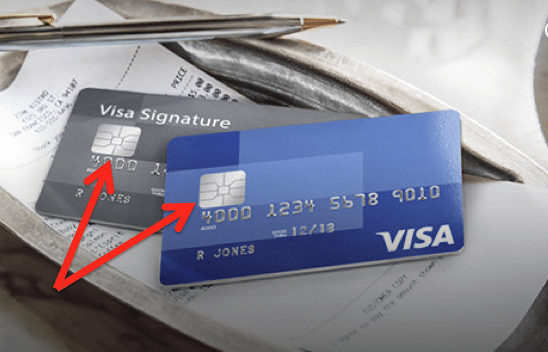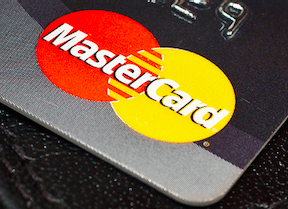This article is mainly for brick-and-mortar merchants, regarding the October 1, 2015 fraud-liability rule changes and misleading sales tactics surrounding the changes.
The new rules are causing a high percentage of retail merchants to change their card processing equipment to avoid liability for certain fraudulent transactions. Read my February and March 2015 articles — “EMV Credit Cards, Part 2: Point-of-sale Devices, Alternatives” and “Follow-up: EMV Credit Cards and AmEx OptBlue” — if you are not familiar with EMV chip cards and the fraud liability change on October 1, 2015.
The reason for this article is to alert merchants that the use of EMV cards has produced some misleading sales tactics that can harm the merchants’ businesses.

EMV credit cards.
Misleading Sales Tactics for EMV Equipment
1. Do not sign a new agreement. You should not have to sign a new agreement with your existing provider to upgrade your equipment to process EMV chip cards.
If your existing provider tells you to sign a new agreement to process EMV chip cards, something else is likely happening other than simply upgrading your equipment and it’s probably not in your best interest.
Merchants have recently contacted me because their existing salespeople told them that they had to sign a new agreement in order to upgrade their equipment to process the new chip cards.
In one specific case, the merchant didn’t understand why he started receiving two statements each month after upgrading. One statement had just minimum monthly fees; the other had the full processing detail and costs.
What the merchants didn’t realize is that they had unknowingly changed providers and in the process changed their pricing and their terms and conditions. They were receiving a statement with minimum fees from the original provider because their salesperson never informed the original provider of the change.
What the merchants didn’t realize is that they had unknowingly changed providers and in the process changed their pricing and their terms and conditions.
Keep in mind that independent sale agents generally sell for more than one provider. They do this for several reasons, mainly to not rely on a single provider for their income.
Unfortunately, some salespeople try to take advantage of representing more than one provider by switching an existing merchant to another provider they represent, to obtain bonuses or other income from the second provider. I’m confident that’s what this sales agent did in this instance.
2. Do not switch providers. Most providers have very strict rules preventing sales agents from switching merchants for personal gain.
In the above example, the sales agent didn’t inform the original provider because, presumably, he violated his contract with the original provider. I know a salesperson that played the provider switching game last year and lost $150,000 in annual residuals when the provider discovered it.
If your salesperson changes your provider without you fully understanding it, the original provider would probably like to know so it can deal with the salesperson.
If your salesperson changes your provider without you fully understanding it, the original provider would probably like to know so it can deal with the salesperson.
The issue of being misleading to merchants isn’t limited to small providers or sales agents that represent several companies. A salesperson from one of the largest banks in the country recently had a merchant sign a new contract — supposedly to use EMV chip card equipment.
The salesperson placed the merchant on a new pricing plan without fully communicating the change. Once again, the merchant started receiving two statements; its monthly processing costs also increased.
3. Watch for salespeople posing as card-company employees. Beware of telemarketers and salespeople posing as someone from one of the card companies.
I have had a number of merchants tell me that they received phone calls from Visa telling them that their terminals are illegal and they must upgrade them. I have never heard of a Visa employee calling a merchant in that manner. Moreover, terminals that cannot process EMV chip card data are not illegal. Certainly merchants should understand the fraud liability shift that takes place on October 1, 2015 and the business decision they must make, as I described in my February and March articles.
4. Never lease equipment. Many salespeople are taking advantage of merchants by leasing terminals and PIN pads for absurd amounts. I’ve spoken with merchants who have signed leases at $99 or more per month for up to four years. These terminals and PIN pads cost $200 to $300 to purchase. If a salesperson ever suggests leasing the equipment, you are speaking to the wrong salesperson. Period.





